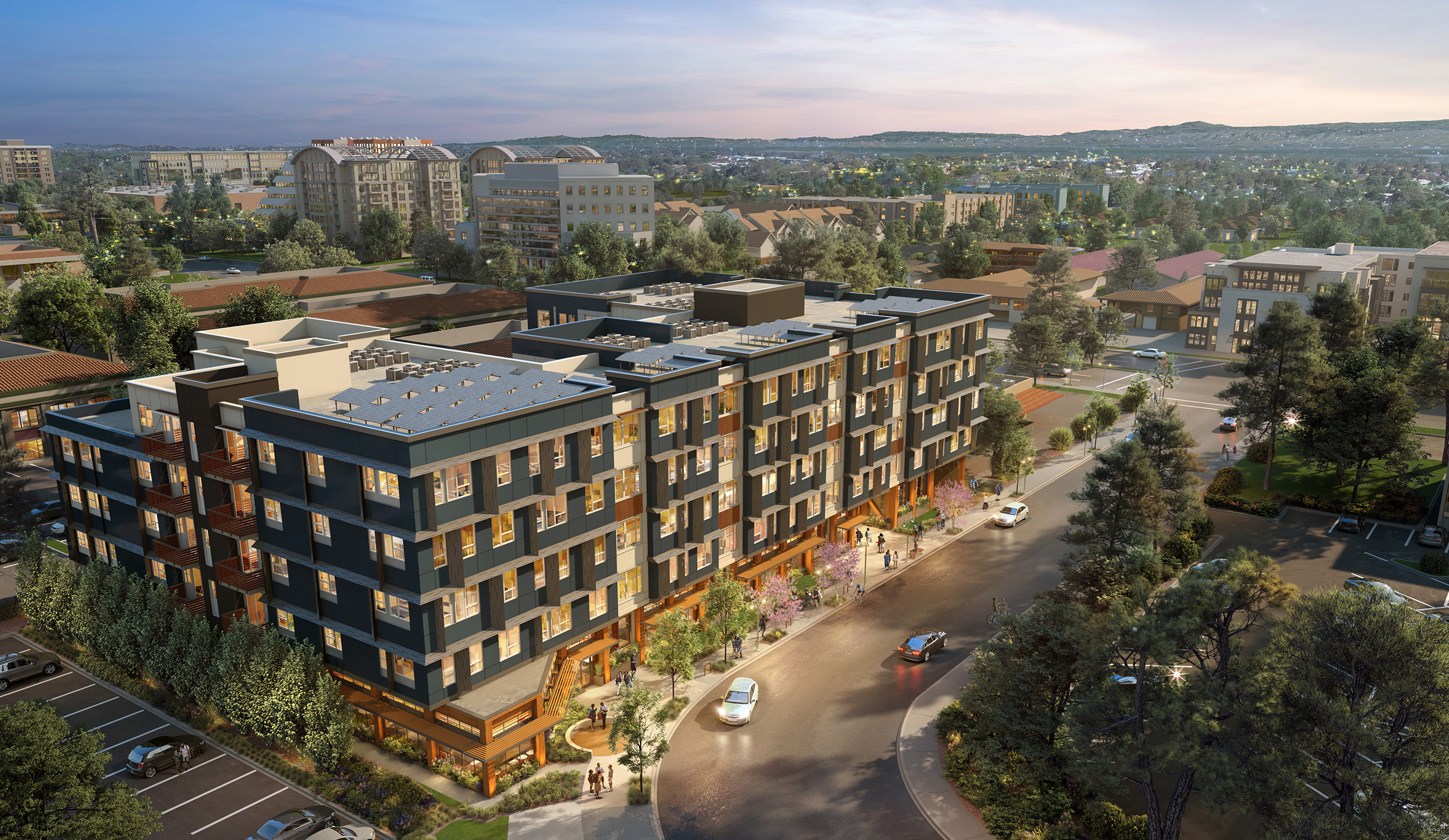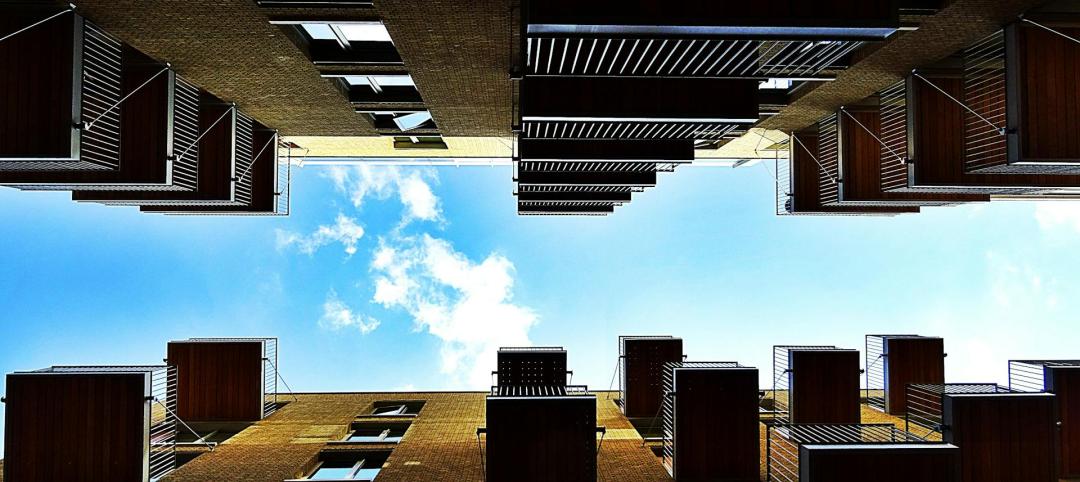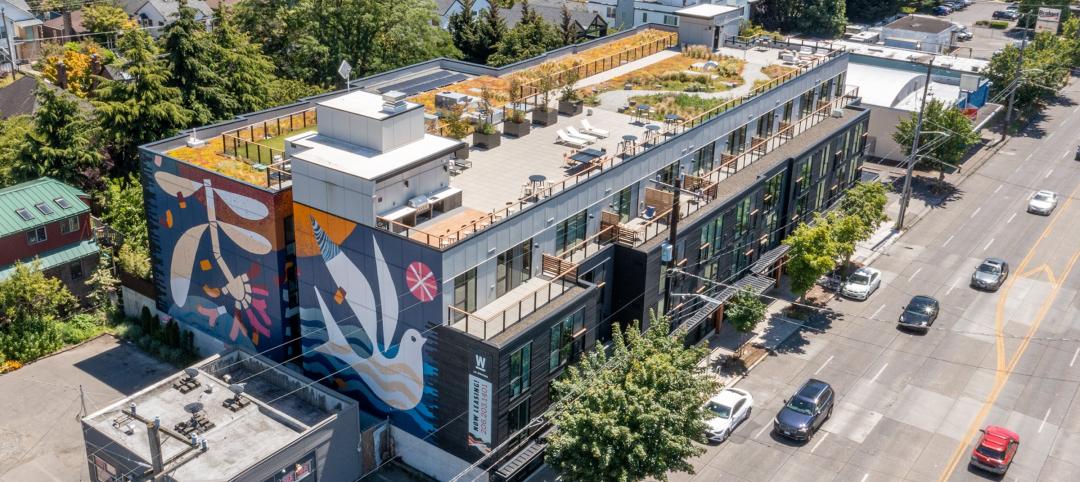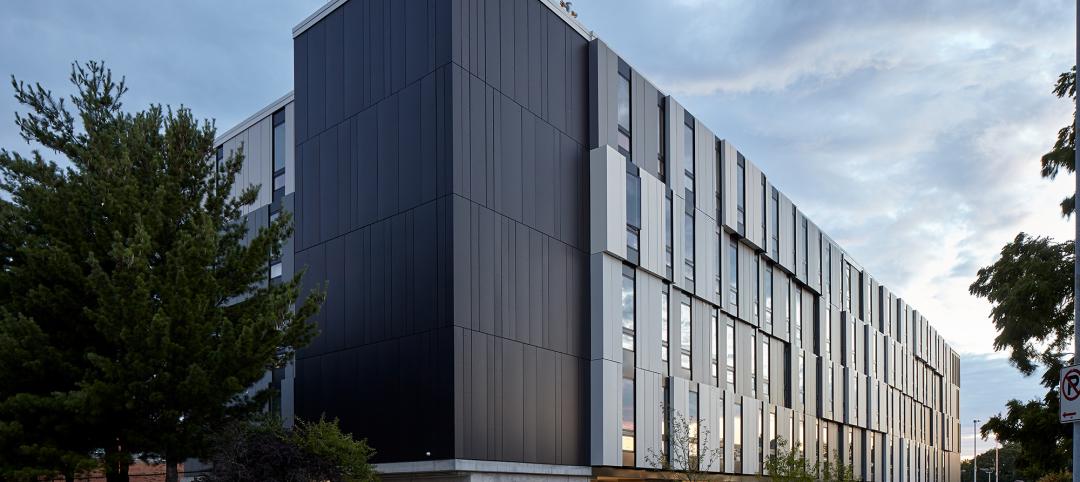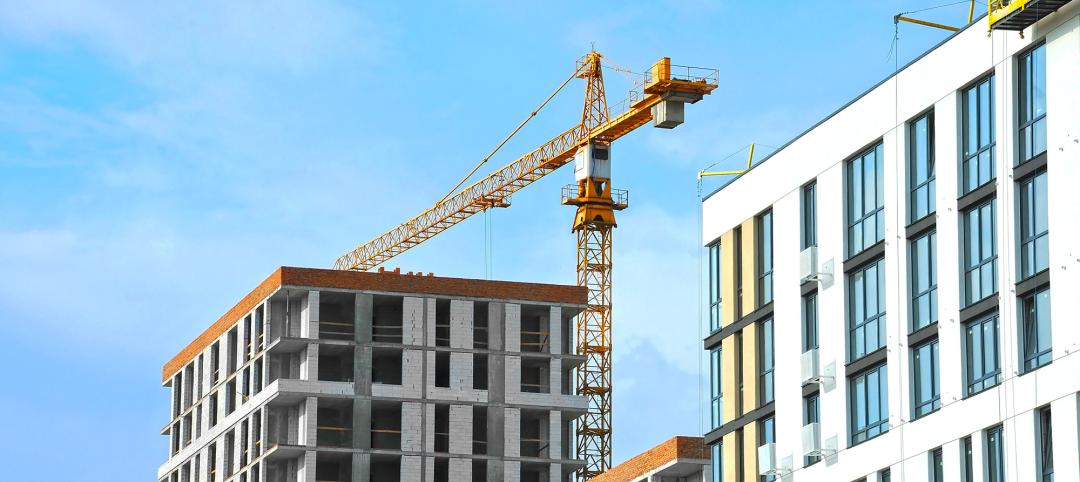In our latest call for entries, Building Design+Construction collected over 20 multifamily projects with a focus on affordable housing. Here are three recent (and future) developments that aced the criteria—reserving 100% of its units for affordable housing standards.
This article is part of BD+C’s 2023 affordable multifamily project roundup. While this article focuses on 100% affordable developments, other categories include Passive House-designed developments, mixed-use communities, and more. The entire list of projects can be found here.
Canal Commons
Bend, Ore.
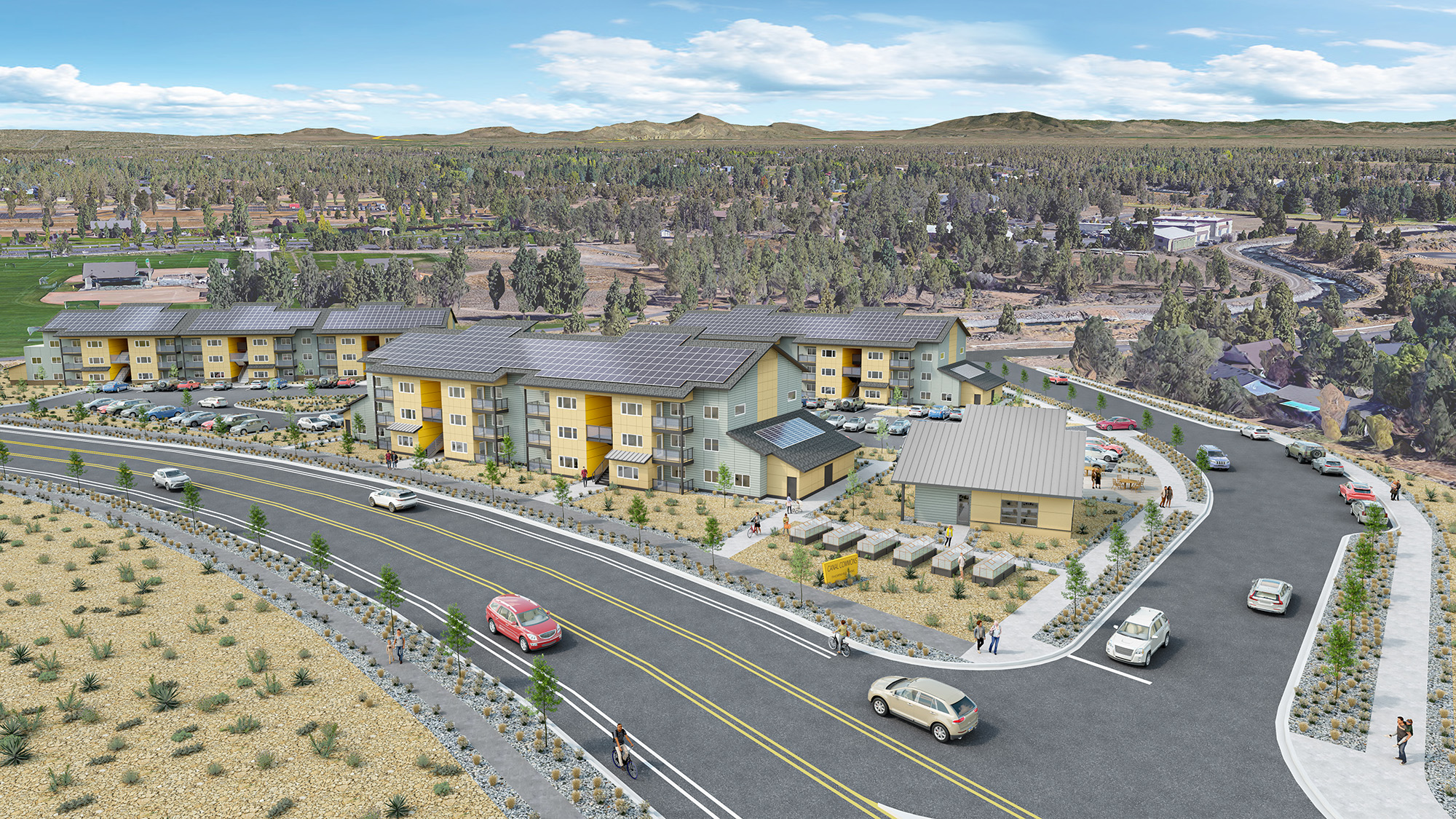
Canal Commons is a 44,525-sf multifamily development located in Bend, Ore., that proves affordability doesn’t have to compromise sustainability. Solar infrastructure provides 300 kw of power across the multiple buildings, reducing overall energy consumption by more than 75 percent. Intelligent lighting systems let 90% of the development’s LED lighting be sensor-controlled, and all appliances installed are Energy Star-certified.
The development’s 48 contemporary units feature one-, two-, and three-bedroom options. Each apartment comes with sustainable systems like thermal break double stud exterior walls, high heel trusses, and cool attic ventilation. On-site amenities include raised gardens, a community room, a fitness space, a meeting area, a leasing office, and a playground.
LRS, lead architect, and its building team partners were able to reduce construction costs through interlinking design philosophies, an economically low rate for its land purchase, and a meticulous development phasing plan. Canal Commons’ Phase I began in 2018 and completed during the Covid-19 pandemic; Phase II is set to wrap up in early 2023.
On the Building Team:
General Contractor: SunWest Builders
Owner/Developer: Pacific Crest Affordable Housing
Architect: LRS Architects
Landscape Architect: Land Effects
Civil/Structural Engineer: Ashley & Vance Engineering
Lucille and Bruce Terwilliger Place
Arlington, Va.
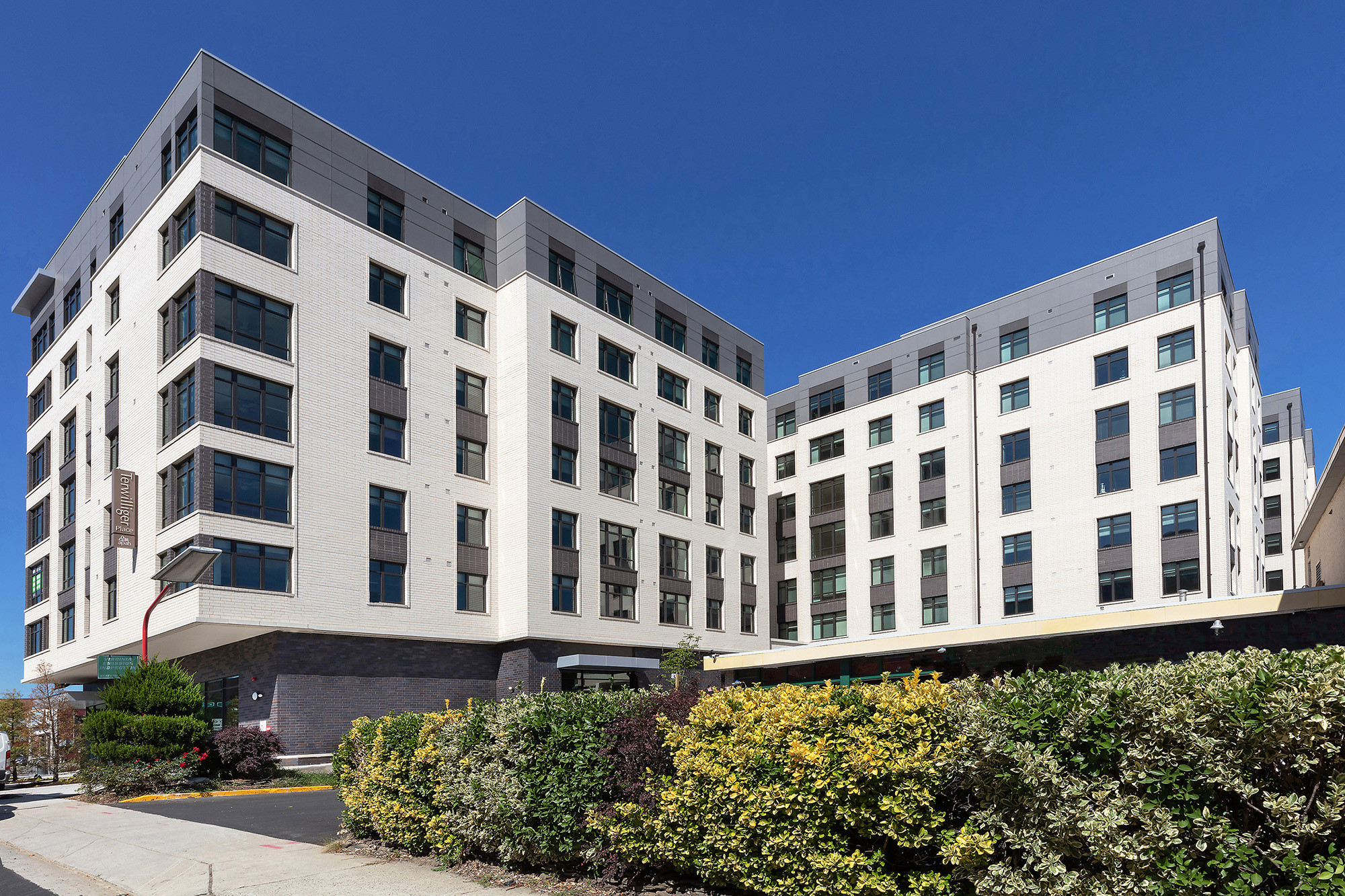
Lucille and Bruce Terwilliger Place was born out of a need to support at-risk veterans and community members in Arlington, Va. The development comprises 160 affordable housing units, indoor and outdoor recreation spaces, as well as a service hub for American Legion Post 139. Half of the units are dedicated to veterans; more than 10% are reserved for households earning 30% of the area’s median income.
The main goal of the aesthetics was to elevate affordable housing, utilizing high quality finishes reflective of a market rate project that would be considered for that same area. To maximize massing, the building overlays the sidewalk which increases unit size. The building is F-shaped to fit like a puzzle piece into the lot for maximum density. Varying brick tones were utilized to break up the scale of the building; hardy panels, metals, and geometric shapes and accents were used as well.
Permanent stormwater control is provided by green roofs and bioretention planters. Strategies such as using materials with recycled content, engineered trim, and advanced framing techniques reduced the use of virgin materials. Significantly improved air sealing techniques, insulation values, and low-e glazing provide a high performing building envelope and improve energy efficiency.
On the Building Team:
General Contractor: CBG Building Company, LLC
Owner/Developer: Arlington Partnership for Affordable Housing (APAH)
Co-Owner: American Legion
Architect: Davis Carter Scott / DCS Design
Landscape Architect: LandDesign
Structural Engineer: SK&A MD
Civil Engineer: Walter L. Phillips Incorporated
MEP Engineer: Allen+Shariff


330 Distel Circle
Los Altos, Calif.
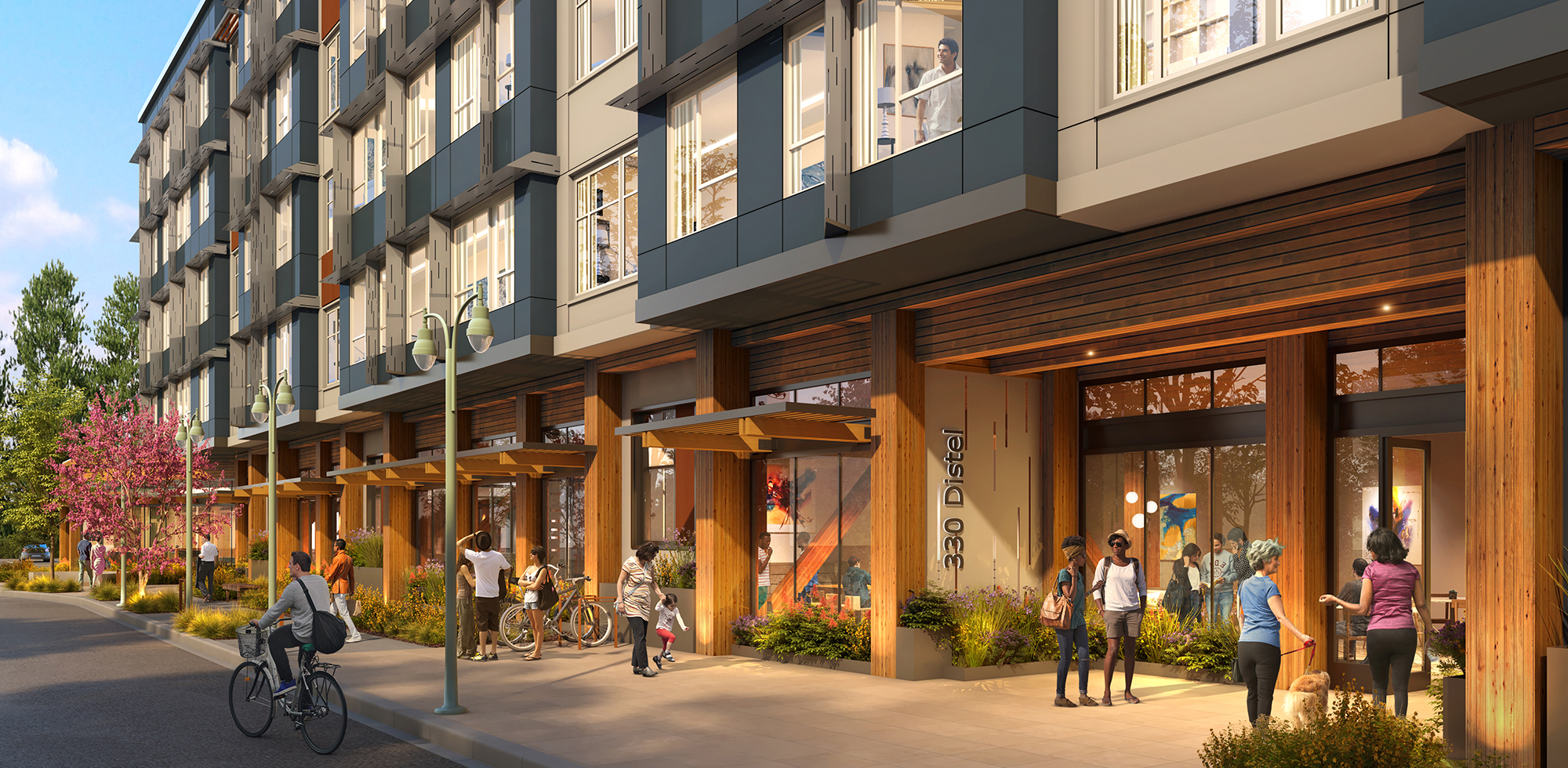
Distel Circle will deliver the first 100% affordable housing project in Los Altos, Calif. Individuals and families earning 30-80% of the area’s median income will qualify. The project—while currently in the design phase and set to break ground in June 2025—will incorporate many design concepts to provide an inclusionary community: Construction innovation via mass timber, vertical parking solutions, modular techniques, and sustainability.
Building sustainable features include solar photovoltaic (PV) panels, water, and energy-saving features, construction material efficiencies, a bike storage and repair station, and electric vehicle charging. Sustainable landscape elements include native plants, stormwater mitigation, an on-site garden, and water-saving features. A challenge for architects has been, and still is, learning how to engage, listen, and synthesize the community’s voice into an opportunity that positively contributes to the project’s final design.
For Distel Circle, the KTGY Oakland studio led a process of engagement that integrated client, community, and stakeholders’ goals. They received input from community members and generated tangible design solutions that balanced the project’s opportunities and constraints.
On the Building Team:
Owner/Developer: EAH Housing
Architect: KTGY
Landscape Architect: Jett Landscape Architecture + Design

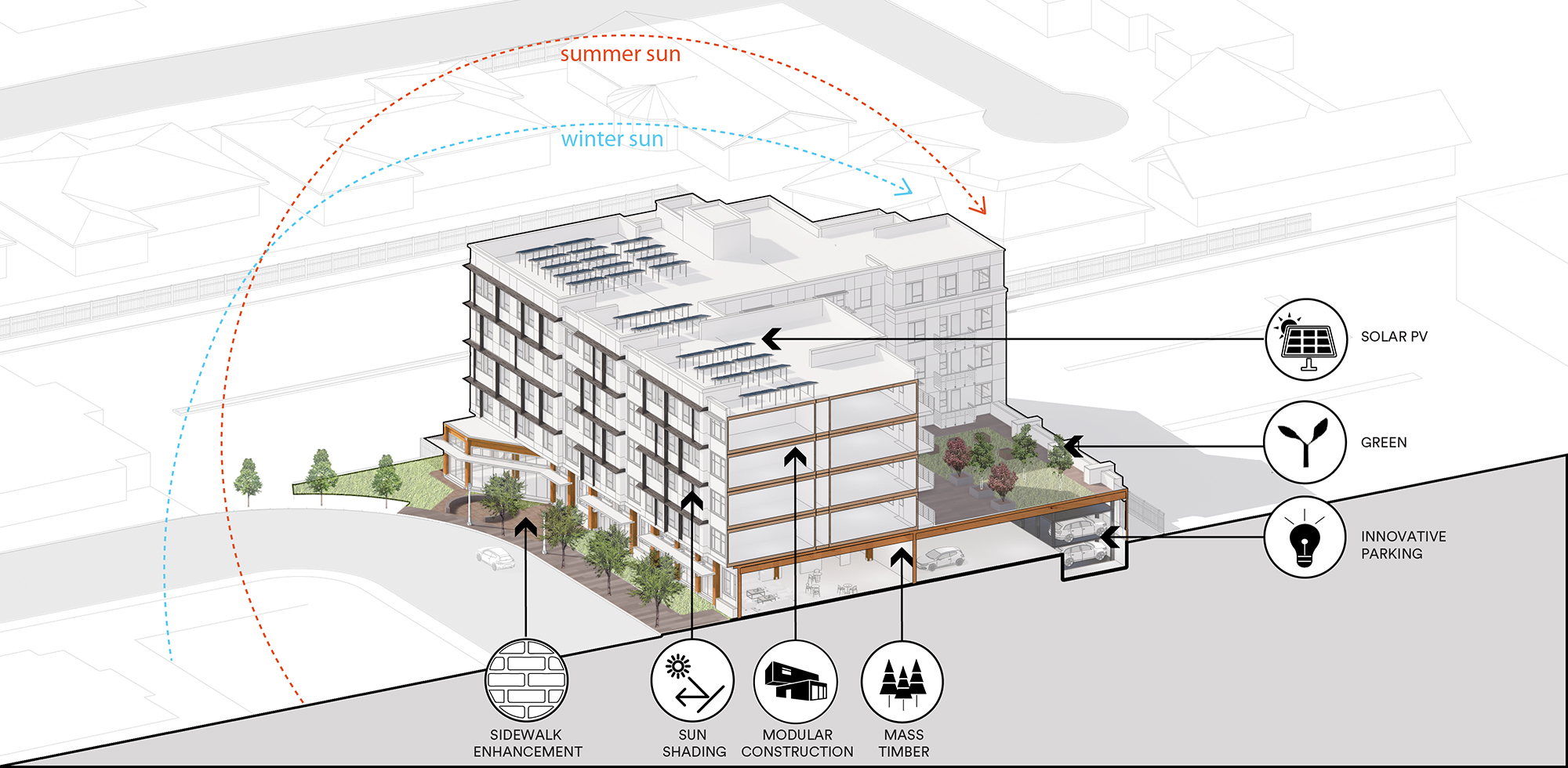
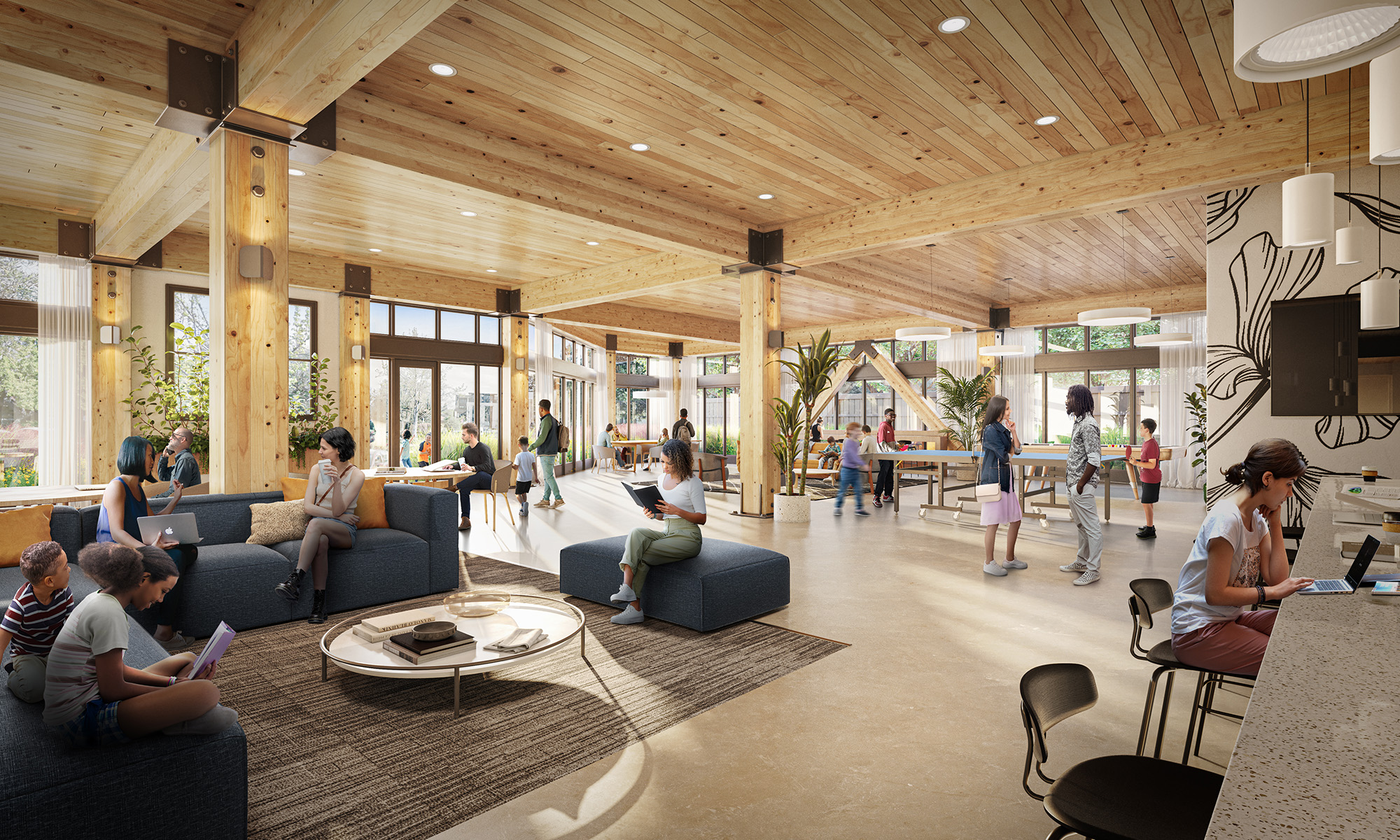
Related Stories
Adaptive Reuse | Aug 28, 2024
Cities in Washington State will offer tax breaks for office-to-residential conversions
A law passed earlier this year by the Washington State Legislature allows developers to defer sales and use taxes if they convert existing structures, including office buildings, into affordable housing.
Affordable Housing | Aug 27, 2024
Not gaining community support is key barrier to more affordable housing projects
In a recent survey, builders and planners cited difficulty in generating community support as a key challenge to getting more affordable housing projects built. The survey by coUrbanize found that 94% of respondents tried to gain community input and support through public meetings, but many were frustrated by low attendance. Few respondents thought the process was productive.
Adaptive Reuse | Aug 22, 2024
6 key fire and life safety considerations for office-to-residential conversions
Office-to-residential conversions may be fraught with fire and life safety challenges, from egress requirements to fire protection system gaps. Here are six important considerations to consider.
MFPRO+ New Projects | Aug 20, 2024
Seattle workforce housing project inspired by geology of eastern Washington
J.G. Whittier Apartments, a workforce housing project in Seattle uses the geology of eastern Washington as inspiration for the design. The architecture and interior design celebrate geometric anomalies found in nature. At the corners of the building, blackened wood siding “erodes” to expose vibrant murals underneath.
MFPRO+ News | Aug 14, 2024
Report outlines how Atlanta can collaborate with private sector to spur more housing construction
A report by an Urban Land Institute’s Advisory Services panel, commissioned by the city’s housing authority, Atlanta Housing (AH), offered ways the city could collaborate with developers to spur more housing construction.
Modular Building | Aug 13, 2024
Strategies for attainable housing design with modular construction
Urban, market-rate housing that lower-income workers can actually afford is one of our country’s biggest needs. For multifamily designers, this challenge presents several opportunities for creating housing that workers can afford on their salaries.
MFPRO+ Research | Aug 9, 2024
Apartment completions to surpass 500,000 for first time ever
While the U.S. continues to maintain a steady pace of delivering new apartments, this year will be one for the record books.
Affordable Housing | Aug 7, 2024
The future of affordable housing may be modular, AI-driven, and made of mushrooms
Demolished in 1989, The Phoenix Ironworks Steel Factory left a five-acre hole in West Oakland, Calif. After sitting vacant for nearly three decades, the site will soon become utilized again in the form of 316 affordable housing units.
MFPRO+ News | Aug 1, 2024
Canada tries massive incentive program to spur new multifamily housing construction
Canada has taken the unprecedented step of offering billions in infrastructure funds to communities in return for eliminating single-family housing zoning.
MFPRO+ New Projects | Jul 31, 2024
Shipping containers converted into attractive, affordable multifamily housing in L.A.
In the Watts neighborhood in Los Angeles, a new affordable multifamily housing project using shipping containers resulted in 24 micro-units for formerly unhoused residents. The containers were acquired from a nearby port and converted into housing units at a factory.


